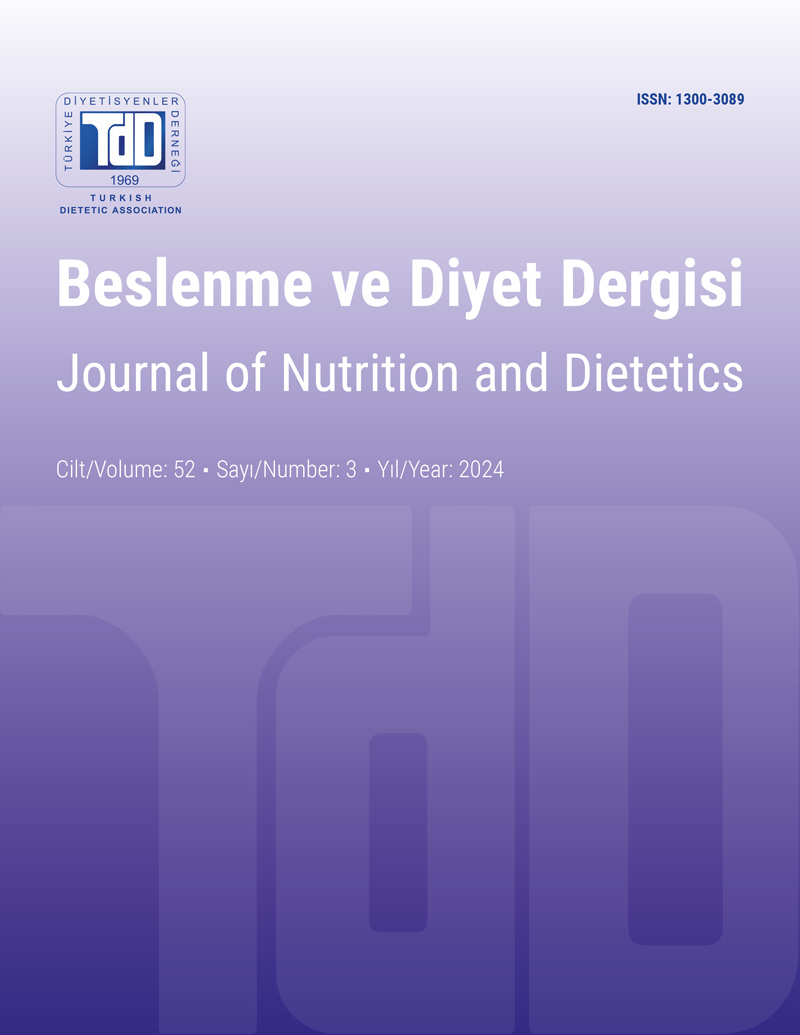Revealing the Nourishing Nexus: Exploring How Eating Behaviors Impact Quality of Life Among Turkish Women
DOI:
https://doi.org/10.33076/2024.BDD.1941Keywords:
Eating behaviors, obesity, physical activity, quality of lifeAbstract
Aim: The aim of this study was to examine the effects of the rapidly spreading worldwide obesity epidemic on eating behaviors and quality of life in the adult female population in Türkiye.
Methods: In this cross-sectional study, data were collected by face-to-face survey technique. The data collection form included demographic questions, the Three-Factor Eating Questionnaire-Short Form (TFEQ), SF-12 Health Survey, International Physical Activity Questionnaire-Short Form (IPAQ), 24-hour dietary recall, and anthropometric measurements (body weight and height).
Results: A total of 1466 women participated in the study and their mean age was 37.69±11.50 years. According to the SF-12 Health Survey, the mean physical component summary score (PCS-12) of the participants was 38.93±10.90 and the mean mental component summary score was (MCS-12) 37.52±11.83. The results of the Three-Factor Eating Questionnaire (TFEQ), the mean cognitive restriction score of the participants was 45.44±32.84, the mean emotional eating score was 33.62±38.36, the mean uncontrolled eating score was 34.88±24.12 and the mean IPAQ-SF MET score was 1797.6±2574.11. In addition, the PCS-12 score of individuals with BMI of >30 kg/m2 was 35.20±11.18, which was significantly lower compared to other groups (p<0.001). The MCS-12 score of individuals with BMI of <18.5 kg/m2 was 34.95±11.07, and this was lower compared to other groups (p<0.001). According to the TFEQ, there was a positive relationship between both the women’s cognitive restriction scores (r=0.250, p<0.001) and emotional eating scores (r=0.270, p<0.001) and their BMI values. Based on the regression results, both the physical and mental component summary scores had a significant impact on uncontrolled eating. Moreover, the mental component summary score significantly affected emotional eating (p=0.027), while the physical component summary score had a significant effect on cognitive restraint (p=0.013).
Conclusions: In this study, which thoroughly examined eating behaviors in a country where over 50% of the adult female population is overweight or obese, a strong relationship between obesity, eating behaviors, and quality of life was observed.

